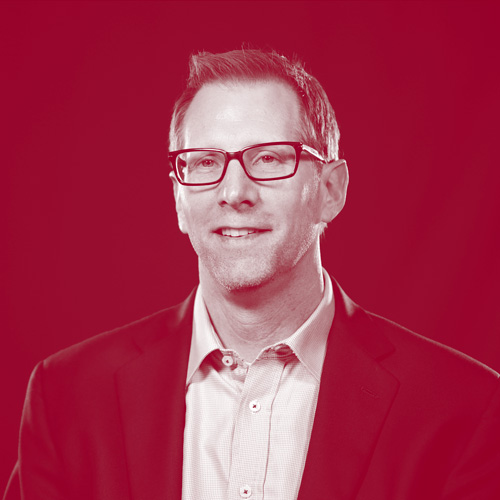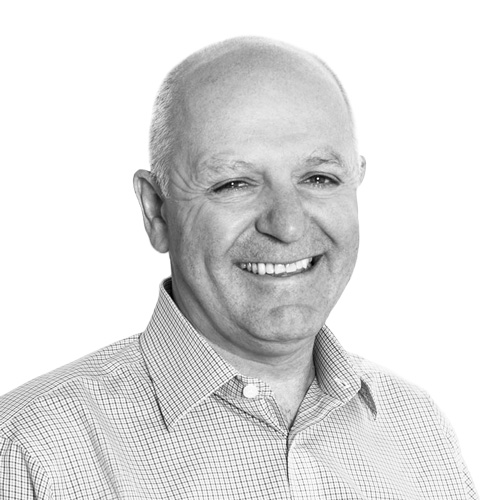During his more than twenty-five years at McWane Inc., Kyle Barrett, vice president and director of corporate tax, has seen enormous changes both in the company he serves and the industries in which it works.
The McWane family of companies includes businesses that cast ductile iron pipes and manufacture products to deliver clean drinking water around the world. The Birmingham, Alabama-based McWane is family-owned and conducts business in eleven countries throughout the world. Founded in 1921 by J.R. McWane as a pipe foundry, it is now under the leadership of the fourth generation of McWanes. The company grew through acquisitions of other foundries as the industry consolidated during the 1970s through the 1990s. “When I started working in the mid-1980s, we were in three states with five plants,” Barrett says. “Now, we have more than forty operations in eleven states, three Canadian provinces, and eleven countries in North America, Europe, South America, Asia, and Australia.”
Barrett earned an accounting degree from the University of South Alabama and took his first job in 1984 with the big-eight accounting firm Coopers & Lybrand, which is now PricewaterhouseCoopers (PwC). One of his clients was McWane, which hired him as its assistant controller in 1991 when it decided to bring its income tax work in house.
The company has continued to grow after acquiring its last foundry in 1995. After that purchase, McWane bought a fire extinguisher manufacturer in Alabama and a pressure tank manufacturer based in Tennessee. More recent acquisitions have been in the tech sector, including companies that focus on cellular communications with distributed antenna systems, radio frequency coverage extensions, and intelligent wireless control and monitoring technology. “We are trying to diversify,” Barrett explains. “In the United States, we have gone about as far as we can in water distribution.”
Barrett sees advantages to working at a privately owned company. “As a family-owned business, the chairman’s goal is to leave the company in better shape for his children,” he says. “We don’t have to look at short-term goals like a public company might. We make sure to leave a sustainable company in good shape for future generations. When I first started here, Mr. McWane emphasized that he didn’t want to leave any tax burden to his children. We don’t try to cut current taxes and leave taxes for the next generation to pay.”
To do that, the company keeps it simple, domestically at least. But Barrett admits that it’s harder to do that internationally. Different countries have different ownership requirements and entities that are better for liability purposes. The tax situation in the United Arab Emirates, for instance, requires 51 percent local ownership. In situations like that, Barrett relies on the assistance of lawyers and international tax experts and works with PwC. “We use their expertise to help guide us in various parts of the world,” he says. “There’s too much for one person to know.”
McWane’s approach to leadership is decentralized. The company puts a lot of responsibility in the hands of each vice president and general manager at their respective plants, which makes it more entrepreneurial. “That has been successful, and it is the approach I use as well,” Barrett says. “I try to give as much responsibility as possible to everyone to do their job and grow with the company.”
That entrepreneurial spirit has not only grown the company in size, but it’s also shepherded in a new age of technology. “This is dating me, but when I started, we used thirteen-column spreadsheets,” he says. “I remember portable computers, when they first came out in 1984 or 1985; they were like a big suitcase. I carried those through airports. Now, of course, we download everything into tax software. Otherwise, I don’t know how we would do it.”
Without today’s technology, the company’s multistate tax filings would be much more difficult. McWane has multiple filings in multiple states, and there are different filing methods in various states. Additionally, the company has to be more meticulous than ever. “States have become more aggressive over the past five to ten years, trying to get as much revenue as they can after the 2008 economic downturn,” Barrett says. “A lot is through taking an aggressive tax posture. It takes a good amount of work, compliance-wise, and dealing with state auditors to come to solutions. It takes much more time these days than it used to.”
Barrett serves on several committees to work for change in the accounting field. As a part of the Fiscal Responsibility Committee, which is a joint committee between the Alabama Society of CPAs and the Business Council of Alabama, he provides expert opinion to elected officials on possible tax legislation. “We give them some real-world impact,” he says. “Legislators can come up with what they think is good tax policy, but they don’t always realize how it works in the real world, what the impact would be, or whether it will achieve the intended result or might have disastrous results if it is implemented the way they originally wrote it.”
In addition to his work in Alabama, Barrett was recently appointed to the US Chamber of Commerce Taxation Committee, which also reviews possible tax changes, a position to which he’s looking forward. “Compliance has become quite burdensome, and the amount of different returns we have to provide these days takes up a lot of time,” he says. “Regulations over the past eight years have grown substantially. After this recent election, we certainly expect tax reform to be on the near-term agenda, and the voices on the committee want to give their opinions on what the best approach would be.”

